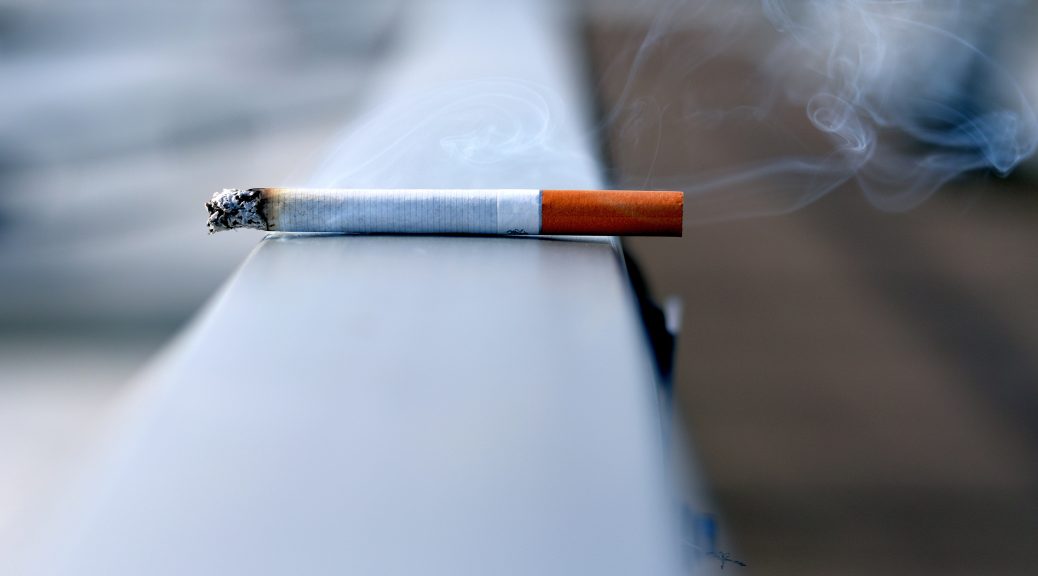How Does Smoking Affect Your Oral Health?
If you’re a smoker, you’ve heard all the warnings before. You know that smoking is linked to many health problems, like COPD and cancer, but did you know it’s actually very detrimental to your oral health too? Smoking can lead to severe mouth problems – from teeth discoloration and bad breath to loose teeth, tooth loss, and even mouth cancer.
Staining, Bad Breath, and Black Hairy Tongue
Stained teeth are one of the first and most noticeable signs of smoking in the mouth. The tar and nicotine in tobacco can make your teeth look yellow at first and in some cases a darker brown for longtime smokers. Smoking can also cause bad breath. Apart from the more immediate impacts after cigarette smoking, resulting dry mouth effects lead to halitosis(bad breath). Black hairy tongue, as the name suggests, gives your tongue a black, hairy appearance. It is caused by a build-up of dead skin cells and is exacerbated by tobacco use.
Gum Disease, Tooth Loss, and Cancer
Gum disease begins when bacteria infects and inflames the gums (gingivitis) and leads to infected bone and supporting tooth structure (periodontitis), beginning with tartar and plaque build-up that harbors this bacteria. Smokers are seven times more likely to develop gum disease than nonsmokers. This is because smoking reduces blood flow, oxygenation, and overall immune response. As a result, your gums are significantly more vulnerable to these harmful bacterias, can’t fight them off as well, and can’t heal as quickly as a nonsmoker.
As the disease progresses, your gums can pull away from your teeth and become more infected. As the bone erodes away, your teeth will get loose, possibly requiring extraction, or they can fall out by themselves! Also while smoking is often linked with lung and throat cancer, it’s also the leading cause of mouth cancer and has been linked to heart disease.
What You Can Do
Obviously, the best way to prevent these issues is to quit smoking. But, we understand that is easier said than done. Here are some other practical steps you can take to help combat the damage smoking can cause:
- Brush and floss. We recommend brushing your teeth at least twice a day, floss, and/or use a water flosser daily. Don’t forget to brush your tongue! The use of electric toothbrushes and waterpiks are encouraged. Use a combination of different techniques to achieve the desired results.
- Do not skip regular checkups. Most studies show you should go to the dentist for a professional cleaning, routine x-rays (as needed), and decay, periodontal, and cancer exams at least every 6 months. You may want to ask your dentist about a more stringent cleaning schedule to help fight against damage caused by tobacco and other underlying tobacco-related issues. We recommend any patients who are at higher risk for gum disease, tooth decay to possibly be seen more frequently to monitor their dental health more closely.
- Toothpaste. Use a Flouride toothpaste formulated to remove more plaque and prevent excess tartar buildup. A prescription-strength toothpaste may be recommended.
- Mouthwash. Consider using a mouthwash with fluoride to keep your breath fresh and teeth healthy. Some can also help reduce harmful bacteria levels in the mouth.
- Be Aware. Check your teeth for signs of declining oral health. If you notice white spots on your gums, your teeth are more sensitive than normal, your teeth are loose, or your gums are bright red or swollen, and prone to bleeding-contact your dentist. These can be signs of serious dental and possibly medical problems that need to be addressed.
Smoking will have negative effects on your teeth, gums, and mouth in general and it’s important to be aware of these issues to help combat them. If you have questions or concerns about your oral health, contact Carolina Family Dentistry today. Don’t wait until it hurts! We are here to help you.








